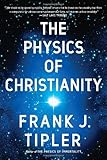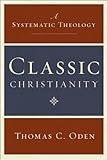|
|
Help |
| Home - Basic C - Christianity (Books) | |
e99 Online Shopping Mall
|
|
Help |
| Home - Basic C - Christianity (Books) | |
| Back | 81-95 of 95 |
click price to see details click image to enlarge click link to go to the store
| 81. How Africa Shaped the Christian Mind: Rediscovering the African Seedbed of Western Christianity by Thomas C. Oden | |
 | Paperback: 204
Pages
(2010-07-23)
list price: US$17.00 -- used & new: US$9.99 (price subject to change: see help) Asin: 0830837051 Average Customer Review: Canada | United Kingdom | Germany | France | Japan |
|
Editorial Review Product Description Customer Reviews (9)
| |
| 82. Is Christianity Good for the World? by Christopher Hitchens, Douglas Wilson | |
 | Paperback: 72
Pages
(2009-10-27)
list price: US$7.00 -- used & new: US$6.04 (price subject to change: see help) Asin: 1591280699 Average Customer Review: Canada | United Kingdom | Germany | France | Japan |
|
Editorial Review Product Description Customer Reviews (34)
| |
| 83. Medieval Christianity: A People's History of Christianity by Daniel Ethan Bornstein | |
 | Hardcover: 350
Pages
(2007-10-22)
list price: US$35.00 -- used & new: US$6.20 (price subject to change: see help) Asin: 0800634144 Average Customer Review: Canada | United Kingdom | Germany | France | Japan |
|
Editorial Review Product Description With ranking scholars from the U.S. and the Continent, this volume explores rituals of birth and death, daily parish life, lay-clerical relations, and relations with Jews and Muslims through a thousand years and many lands. Includes 50 illustrations, maps, and an 8-page color gallery. Customer Reviews (2)
| |
| 84. A Short History of Christianity by Stephen Tomkins | |
 | Paperback: 256
Pages
(2006-07-15)
list price: US$15.00 -- used & new: US$6.19 (price subject to change: see help) Asin: 0802833829 Average Customer Review: Canada | United Kingdom | Germany | France | Japan |
|
Editorial Review Product Description In A Short History of Christianity Stephen Tomkins takes readers on an entertaining and enlightening journey through the key stages of Christian development, covering the people, the events, the movements, and the controversies of the church. Tomkins deals with the well-known (Augustine, Martin Luther), the unique (Simeon Stylites, the people's crusade, the Muggletonians), and the recent (Karl Barth, John Paul II, the Toronto blessing). His penetrating, energetic Short History of Christianity is sure to delight and inform a broad range of readers. Customer Reviews (9)
| |
| 85. Christianity Beyond Belief: Following Jesus for the Sake of Others by Todd D. Hunter | |
 | Paperback: 199
Pages
(2010-05-04)
list price: US$16.00 -- used & new: US$9.19 (price subject to change: see help) Asin: 0830832564 Average Customer Review: Canada | United Kingdom | Germany | France | Japan |
|
Editorial Review Product Description Customer Reviews (9)
| |
| 86. The Freethinker's Text Book, Part II.Christianity: Its Evidences, Its Origin, Its Morality, Its History by Annie Wood Besant | |
 | Kindle Edition:
Pages
(2009-10-04)
list price: US$1.99 Asin: B002RKTLG0 Canada | United Kingdom | Germany | France | Japan |
|
Editorial Review Product Description | |
| 87. The Physics of Christianity by Frank J. Tipler | |
 | Paperback: 336
Pages
(2008-08-19)
list price: US$15.95 -- used & new: US$5.97 (price subject to change: see help) Asin: 0385514255 Average Customer Review: Canada | United Kingdom | Germany | France | Japan |
|
Editorial Review Product Description Customer Reviews (35)
| |
| 88. Theology in the Context of World Christianity: How the Global Church Is Influencing the Way We Think about and Discuss Theology by Timothy C. Tennent | |
 | Hardcover: 320
Pages
(2007-11-13)
list price: US$24.99 -- used & new: US$15.45 (price subject to change: see help) Asin: 0310275113 Average Customer Review: Canada | United Kingdom | Germany | France | Japan |
|
Editorial Review Product Description Customer Reviews (4)
| |
| 89. Classic Christianity Study Guide: Life's Too Short to Miss the Real Thing by Bob George | |
 | Paperback: 128
Pages
(2010-02-01)
list price: US$8.99 -- used & new: US$5.04 (price subject to change: see help) Asin: 0736929150 Canada | United Kingdom | Germany | France | Japan |
|
Editorial Review Product Description More than half a million tired, frustrated Christians have rediscovered the life-transforming truths of the gospel in Classic Christianity. In this practical study guide to the book, they’ll find more step-by-step help for becoming grounded in the Father’s liberating love. After briefly reviewing a section of Classic Christianity, author and Bible teacher Bob George provides Scriptures, questions, and insightful examples to help readers fully understand and grow in their identities in Christ. Used with the book or as a stand-alone study, this resource encourages believers and seekers to discover the true Source of life and freedom—Jesus Christ. Fill-in space is provided for readers to use as they work through this volume. Together with Classic Christianity, this study guide provides a great curriculum for small groups or Sunday-school classes. Find out more at www.classicchristianity.com. | |
| 90. A Christianity Worth Believing: Hope-filled, Open-armed, Alive-and-well Faith for the Left Out, Left Behind, and Let Down in us All by Doug Pagitt | |
 | Paperback: 256
Pages
(2009-04-20)
list price: US$14.95 -- used & new: US$8.84 (price subject to change: see help) Asin: 0470455349 Average Customer Review: Canada | United Kingdom | Germany | France | Japan |
|
Editorial Review Product Description Customer Reviews (17)
| |
| 91. Classic Christianity: A Systematic Theology by Thomas C. Oden | |
 | Hardcover: 944
Pages
(2009-08-01)
list price: US$39.99 -- used & new: US$39.15 (price subject to change: see help) Asin: 0061449717 Average Customer Review: Canada | United Kingdom | Germany | France | Japan |
|
Editorial Review Product Description For the first time, Thomas Oden's Systematic Theology classic series (individually titled The Living God, The Word of Life, and Life in the Spirit) is available in one complete volume. A renowned theologian, Oden provides a consensus view of the Christian faith, delving deeply into ancient Christian tradition and bringing to the contemporary church the best wisdom from its past. In this magisterial work, Oden tackles the central questions of Christian belief and the nature of the trinity. Written for clergy, Christian educators, religious scholars, and lay readers alike, Classic Christianity provides the best synthesis of the whole history of Christian thought. Part one explores the most intriguing questions of the study of God—Does God exist? Does Jesus reveal God? Is God personal, compassionate, free?—and presents answers that reflect the broad consensus culled from the breadth of the church's teachers. It is rooted deeply and deliberately in scripture but confronts the contemporary mind with the vitality of the Christian tradition. Part two addresses the perplexing Christological issues of whether God became flesh, whether God became Christ, and whether Christ is the source of salvation. Oden details the core beliefs concerning Jesus Christ that have been handed down for the last two hundred decades, namely, who he was, what he did, and what that means for us today. Part three examines how the work of God in creation and redemption is being brought to consummation by the Holy Spirit in persons, through communities, and in the fullness of human destiny. Oden's magisterial study not only treats the traditional elements of systematical theology but also highlights the foundational exegetes throughout history. Covering the ecumenical councils and early synods; the great teachers of the Eastern church tradition, including Athanasius and John Chrysostom; and the prominent Western figures such as Augustine, Ambrose, Thomas Aquinas, Martin Luther, and John Calvin, this book offers the reader the fullest understanding of the Christian faith available. Customer Reviews (1)
| |
| 92. The Soul of Christianity: Restoring the Great Tradition (Plus) by Huston Smith | |
 | Paperback: 224
Pages
(2006-09-01)
list price: US$14.95 -- used & new: US$5.25 (price subject to change: see help) Asin: B001PO68TW Average Customer Review: Canada | United Kingdom | Germany | France | Japan |
|
Editorial Review Product Description "I have tried to describe a Christianity which is fully compatible with everything we now know, and to indicate why Christians feel privileged to give their lives to it." In his most personal and passionate book on the spiritual life, renowned author, scholar, and teacher of world religions Huston Smith turns to his own life-long religion, Christianity. With stories and personal anecdotes, Smith not only presents the basic beliefs and essential teachings of Christianity, but argues why religious belief matters in today's secular world. Though there is a wide variety of contemporary interpretations of Christianity—some of them conflicting—Smith cuts through these to describe Christianity's "Great Tradition," the common faith of the first millennium of believers, which is the trunk of the tree from which Christianity's many branches, twigs, and leaves have grown. This is not the exclusivist Christianity of strict fundamentalists, nor the liberal, watered-down Christianity practiced by many contemporary churchgoers. In exposing biblical literalism as unworkable as well as enumerating the mistakes of modern secularists, Smith presents the very soul of a real and substantive faith, one still relevant and worth believing in. Smith rails against the hijacked Christianity of politicians who exploit it for their own needs. He decries the exercise of business that widens the gap between rich and poor, and fears education has lost its sense of direction. For Smith, the media has become a business that sensationalizes news rather than broadening our understanding, and art and music have become commercial and shocking rather than enlightening. Smith reserves his harshest condemnation, however, for secular modernity, which has stemmed from the misreading of science—the mistake of assuming that "absence of evidence" of a scientific nature is "evidence of absence." These mistakes have all but banished faith in transcendence and the Divine from mainstream culture and pushed it to the margins. Though the situation is grave, these modern misapprehensions can be corrected, says Smith, by reexamining the great tradition of Christianity's first millennium and reaping the lessons it holds for us today. This fresh examination of the Christian worldview, its history, and its major branches provides the deepest, most authentic vision of Christianity—one that is both tolerant and substantial, traditional and relevant. Customer Reviews (21)
| |
| 93. Anarchy and Christianity by Mr. Jacques Ellul | |
 | Paperback: 109
Pages
(1988-01-01)
list price: US$14.00 -- used & new: US$14.00 (price subject to change: see help) Asin: 0802804950 Average Customer Review: Canada | United Kingdom | Germany | France | Japan |
|
Editorial Review Product Description Customer Reviews (7)
| |
| 94. Judaism and Christianity: the Differences by Trude Weiss-Rosmarin | |
 | Paperback: 160
Pages
(1997-01-01)
list price: US$16.95 -- used & new: US$9.25 (price subject to change: see help) Asin: 0824603982 Average Customer Review: Canada | United Kingdom | Germany | France | Japan |
|
Editorial Review Product Description Customer Reviews (11)
I would encourange a person wanting to discover the true differences between these two religions to look elsewhere. ... Read more | |
| 95. The Subversion of Christianity by Mr. Jacques Ellul | |
 | Paperback: 224
Pages
(1986-10-31)
list price: US$22.00 -- used & new: US$19.99 (price subject to change: see help) Asin: 0802800491 Average Customer Review: Canada | United Kingdom | Germany | France | Japan |
|
Editorial Review Product Description Customer Reviews (9)
| |
| Back | 81-95 of 95 |